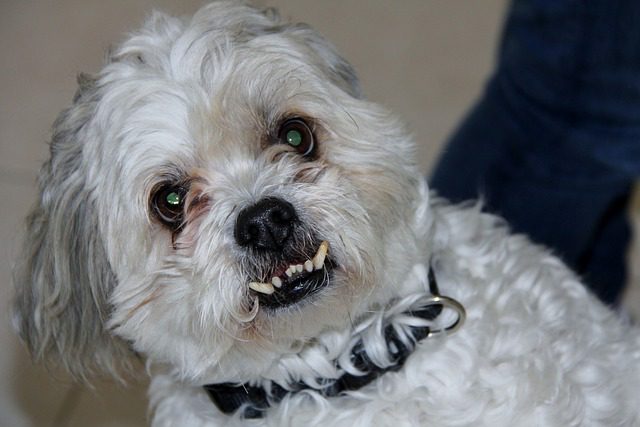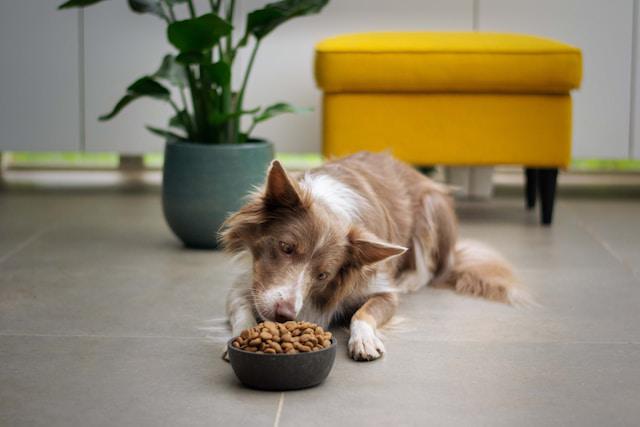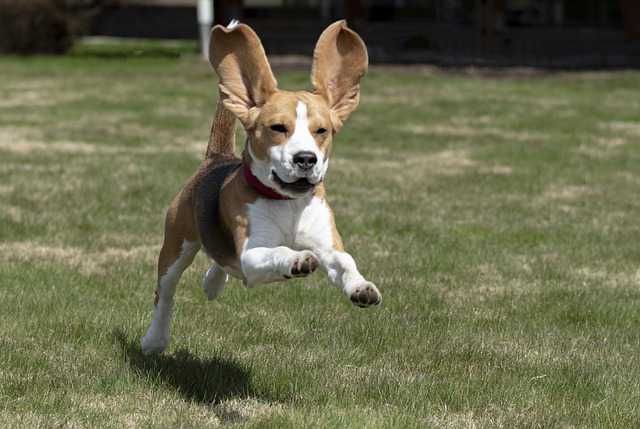Why Is My Dog Aggressive When Sleepy [12 Reasons & Fix]
![Why Is My Dog Aggressive When Sleepy [12 Reasons & Fix] Dog Aggressive When Sleepy](https://petcreeks.com/wp-content/uploads/2023/02/Dog-Aggressive-When-Sleepy.jpg)
Why is your dog aggressive when sleepy? Let’s find out together…
Have you ever noticed your furry friend getting a bit grumpy when they’re tired? Well, you’re not alone!
In this blog post, we’ll dive into the fascinating world of dog aggression when sleepy, exploring why our adorable buddies can sometimes turn into little balls of fury when they’re in need of some shut-eye.
Let’s get started…
Why Is My Dog Aggressive When Sleepy
Dogs may exhibit aggression when they are sleepy due to a heightened state of irritability and decreased tolerance for stimuli.
Sleep deprivation can lead to increased stress levels and a reduced ability to regulate emotions, resulting in reactive behavior.
It is important to provide dogs with adequate rest and a comfortable sleeping environment to help prevent aggression when they are tired.
Let’s dive deeper…
Reasons For a Dog Being Aggressive When Sleepy
The following are some common reasons for a dog being aggressive when sleepy:
1. Sleep Startle Reflex
When a dog is in a deep sleep and suddenly wakes up, they may experience a startle reflex. This can cause them to react aggressively out of fear or confusion.
To fix this issue, it is important to create a safe and calm sleeping environment for the dog.
This can be done by providing a comfortable and secure sleeping area, minimizing disturbances during sleep, and gradually waking the dog up by calling their name or gently touching them.
2. Fear and Anxiety
Fear and anxiety can also contribute to aggressive behavior when a dog is sleepy. It is important to identify the underlying causes of fear and anxiety and address them appropriately.
This may involve desensitization and counterconditioning techniques, providing a safe and predictable environment, and using calming aids such as pheromone diffusers or anxiety wraps.
In some cases, professional help from a dog behaviorist or trainer may be necessary.
3. Physical Pain and Discomfort
Physical pain or discomfort can make a dog more irritable and reactive, especially when they are sleepy.
It is important to rule out any underlying medical conditions or injuries that may be causing pain. If physical pain is identified, appropriate veterinary care should be sought to address the issue.
Pain management strategies, such as medication or physical therapy, may be recommended by a veterinarian.
4. Lack of Exercise and Mental Stimulation Activities During the Day
A dog that hasn’t received enough exercise or mental stimulation during the day may have excess energy or frustration, which can contribute to aggressive behavior when they are sleepy.
Providing regular exercise and engaging the dog in mentally stimulating activities throughout the day can help prevent this.
This can include activities such as walks, playtime, puzzle toys, and training sessions. Ensuring the dog’s needs are met before bedtime can help promote a calmer and more relaxed state during sleep.
5. Lack of Proper Daily Sleeping Routine
A lack of a proper daily sleeping routine can contribute to a dog becoming aggressive when sleepy. Dogs, like humans, thrive on routine and consistency. When their sleep patterns are disrupted or inconsistent, it can lead to irritability and aggression.
To fix this issue, it is important to establish a regular sleep schedule for the dog. This includes setting consistent bedtimes and wake-up times, as well as providing a comfortable and quiet sleeping environment. Additionally, ensuring that the dog gets enough physical and mental exercise during the day can help promote better sleep at night.
6. Past Traumatic Experience
Past traumatic experiences can also contribute to a dog becoming aggressive when sleepy. Dogs that have experienced abuse, neglect, or other traumatic events may develop fear or anxiety around sleep.
This can manifest as aggression when they are feeling vulnerable or sleepy. To address this issue, it is important to provide a safe and secure sleeping environment for the dog.
This may include using a crate or a designated sleeping area where the dog feels protected. Additionally, working with a professional dog trainer or behaviorist can help the dog overcome their past traumas and develop healthier sleep behaviors.
7. Cognitive Dysfunction
Cognitive dysfunction, which is similar to dementia in humans, can also cause aggression in dogs when they are sleepy.
As dogs age, they may experience cognitive decline, which can affect their sleep patterns and behavior. Dogs with cognitive dysfunction may become disoriented, anxious, or agitated when they are sleepy, leading to aggressive behavior.
To address this issue, it is important to consult with a veterinarian who can provide a proper diagnosis and recommend appropriate treatment options. This may include medications, dietary changes, and environmental modifications to support the dog’s cognitive health.
8. Abnormal Serotonin Levels
Abnormal serotonin levels can also contribute to aggression in dogs when they are sleepy. Serotonin is a neurotransmitter that plays a role in regulating mood and behavior. Imbalances in serotonin levels can lead to mood disorders and aggressive behavior.
To address this issue, it is important to consult with a veterinarian who can assess the dog’s serotonin levels and recommend appropriate treatment options. This may include medications or supplements that help regulate serotonin levels and promote a calmer and more balanced mood.
9. Sleeping Disturbances
One possible reason for a dog being aggressive when sleepy is sleeping disturbances. Just like humans, dogs can experience sleep disorders or disruptions that can affect their behavior.
These disturbances can include nightmares, sleepwalking, or even physical discomfort during sleep.
How to fix it:
- Provide a comfortable sleeping environment: Ensure that your dog has a cozy and quiet place to sleep, away from any distractions or disturbances.
- Establish a bedtime routine: Create a consistent routine before bedtime to help your dog relax and prepare for sleep. This can include activities like a calming walk, gentle play, or a relaxing massage.
- Consult a veterinarian: If you suspect that your dog’s aggression when sleepy is due to a sleep disorder or physical discomfort, it’s important to consult with a veterinarian. They can assess your dog’s health and provide appropriate treatment or recommendations.
10. Protection Aggression
Another reason for a dog being aggressive when sleepy is protection aggression. Dogs are instinctively protective of their territory, resources, and family members.
When they are in a vulnerable state, such as when they are sleepy, they may become more reactive and defensive.
How to fix it:
- Avoid triggering situations: Identify the specific triggers that cause your dog to become aggressive when sleepy and try to avoid or minimize exposure to those triggers.
- Provide a safe space: Create a designated safe space for your dog where they can retreat and feel secure when they are sleepy. This can be a crate or a specific area in your home.
- Training and socialization: Proper training and socialization can help your dog develop better impulse control and reduce protective aggression. Enroll your dog in obedience classes or work with a professional dog trainer to address these behaviors.
11. Medical Issues
Underlying medical issues can also contribute to a dog being aggressive when sleepy. Pain, discomfort, or certain medical conditions can cause dogs to be irritable and reactive, especially when they are in a vulnerable state.
How to fix it:
- Consult a veterinarian: If you suspect that your dog’s aggression when sleepy is due to a medical issue, it’s crucial to consult with a veterinarian. They can perform a thorough examination, run necessary tests, and provide appropriate treatment for any underlying medical conditions.
- Pain management: If your dog is experiencing pain, your veterinarian may prescribe pain medication or recommend alternative therapies to help manage their discomfort.
- Follow the veterinarian’s recommendations: It’s important to follow your veterinarian’s recommendations for the treatment and management of any medical issues. This may include changes in diet, medication administration, or lifestyle adjustments.
12. Side Effects of Medication
In some cases, aggressive behavior when sleepy in dogs may be a side effect of certain medications they are taking. Some medications can affect a dog’s mood, behavior, and sleep patterns.
How to fix it:
- Consult a veterinarian: If you suspect that your dog’s aggression when sleepy is related to medication side effects, consult with your veterinarian. They can review the medications your dog is taking and determine if any adjustments need to be made.
- Adjust medication dosage or switch medications: Depending on the specific medication and its side effects, your veterinarian may recommend adjusting the dosage or switching to an alternative medication that has fewer behavioral side effects.
- Monitor your dog’s behavior: Keep a close eye on your dog’s behavior and report any changes or concerns to your veterinarian. They can provide guidance on how to manage any medication-related aggression.
Tips to Stop a Dog from Becoming Aggressive When Sleepy
When a dog becomes aggressive when sleepy, it can be concerning and potentially dangerous. Here are some tips to help address this issue:
1. Avoid Over-Tiring Your Dog: One of the main reasons dogs become aggressive when tired is because they are overly exhausted. Make sure your dog gets enough rest and sleep throughout the day to prevent them from becoming overly tired.
2. Provide a Comfortable Sleeping Area: Create a designated sleeping area for your dog that is quiet, comfortable, and away from high-traffic areas. This will help them feel secure and reduce the chances of them being startled when they are asleep.
3. Establish a Consistent Routine: Dogs thrive on routines. Set regular feeding and bedtime schedules to create a sense of security for your pet. A predictable routine helps them anticipate sleep and prevents nighttime restlessness.
4. Gradual Conditioning: You can condition your dog to respond positively to being touched or awakened while they are partially asleep or fully asleep. Start by tapping a specific spot on their body (avoiding the head) and rewarding them with a treat. Gradually increase the level of touch or stimulation while continuing to reward them. This can help them associate being awakened with positive experiences.
4. Avoid Sudden Waking: Try to avoid waking your dog suddenly, especially when they are in a deep sleep. Instead, approach them calmly and gently, giving them time to wake up gradually.
5. Provide Mental Stimulation: Engage your dog in mentally stimulating activities throughout the day to help tire them out mentally. This can include puzzle toys, training sessions, or interactive games.
6. Positive Reinforcement: Reward your dog for calm and non-aggressive behavior, especially when they’re tired. Positive reinforcement can encourage the right behaviors.
7. Avoid Disturbances During Sleep Time: Ensure a calm environment when it’s bedtime. Keep noise levels down, dim the lights, and avoid sudden disruptions to help your dog fall asleep peacefully.
8. Consult a Professional: If your dog’s aggression when sleepy persists or worsens, it is important to seek guidance from a professional dog trainer or behaviorist. They can assess the situation and provide personalized advice and training techniques to address the issue.
Remember, every dog is unique, and it may take time and patience to address and modify their behavior. Consistency, positive reinforcement, and understanding their individual needs are key to helping your dog overcome aggression when sleepy.
Frequently Asked Questions
Why does my dog become aggressive when sleepy?
Just like humans, dogs can experience mood changes when they’re tired. When dogs are sleepy, their tolerance for certain behaviors might decrease, leading to a heightened sense of irritability. This can manifest as aggression towards other animals or even humans.
How can I prevent my dog from becoming aggressive when sleepy?
One way to prevent sleep-related aggression is to establish a consistent sleep routine for your dog. Make sure they have a quiet and comfortable sleeping area where they can rest undisturbed. Additionally, avoid provoking or disturbing your dog when they’re in a deep sleep.
Should I be concerned if my dog displays aggression only when sleepy?
While it’s not uncommon for dogs to become irritable when tired, it’s important to monitor their behavior closely. If the aggression becomes frequent or escalates, it’s advisable to consult a professional dog trainer or veterinarian to assess the underlying cause and develop a behavior modification plan.
Can sleep-related aggression be a sign of an underlying health issue?
In some cases, sleep-related aggression can be a symptom of an underlying medical condition, such as pain or discomfort. If you notice any other unusual behavior or suspect that your dog may be in pain, it’s best to consult with a veterinarian to rule out any health concerns.
Is sleep-related aggression a common problem in dogs?
While not all dogs display aggression when sleepy, it is not uncommon. Some dogs may simply be more prone to irritability when tired due to their individual temperament or past experiences. It’s important to address this behavior early on to prevent it from worsening.
Can training help reduce sleep-related aggression in dogs?
Yes, training can be effective in managing sleep-related aggression. Working with a professional dog trainer can help identify the triggers and develop a behavior modification plan tailored to your dog’s specific needs. Consistent training, positive reinforcement, and providing a calm sleep environment can all contribute to reducing sleep-related aggression.
Conclusion
In conclusion, when it comes to understanding why dogs can become aggressive when sleepy, it’s essential to remember that just like humans, they too need their rest.
By recognizing the signs of sleepiness and providing a comfortable and quiet space for them to nap undisturbed, we can help prevent any potential outbursts and ensure a harmonious and safe environment for both our furry friends and ourselves.
So, let’s prioritize their sleep needs and enjoy peaceful moments together!




![How Do I Get My Puppy To Drink Water [10 Working Tips] How Do I Get My Puppy To Drink Water](https://petcreeks.com/wp-content/uploads/2023/04/How-Do-I-Get-My-Puppy-To-Drink-Water-768x555.jpg)

![Understanding Play Aggression in Dogs [Signs, Causes & Fix] Play Aggression in Dogs](https://petcreeks.com/wp-content/uploads/2023/10/pexels-павел-гавриков-8716315.jpg)